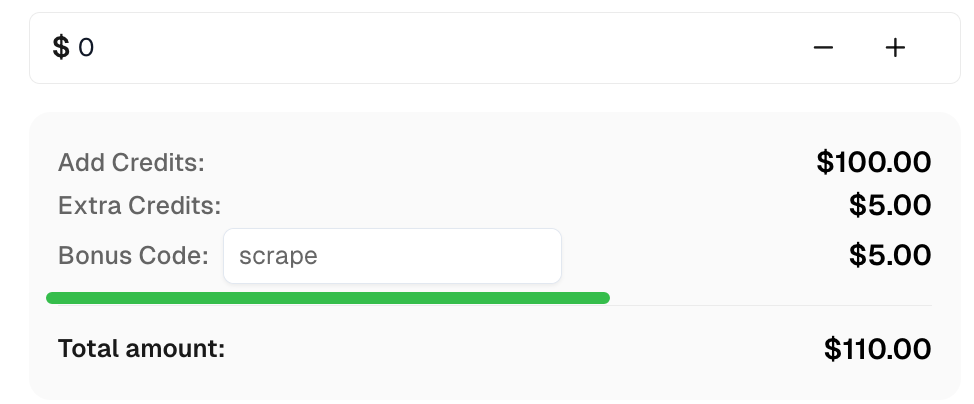How to Use curl_cffi for Web Scraping

Ethan Collins
Pattern Recognition Specialist
17-Sep-2024

What is curl_cffi?
curl_cffi is a Python library that provides efficient, low-level bindings to the libcurl library using CFFI (C Foreign Function Interface). This allows you to perform HTTP requests with high performance and fine-grained control, similar to the curl command-line tool but within Python. It's particularly useful for web scraping tasks that require speed and advanced configurations.
Features:
- High Performance: Leverages the speed of
libcurlfor fast HTTP requests. - Thread Safety: Safe to use in multi-threaded applications.
- Advanced Features: Supports proxies, SSL/TLS configurations, custom headers, and more.
- Low-Level Control: Provides detailed control over the request and response process.
Prerequisites
Before you dive into using curl_cffi, ensure you have the following installed:
- Python 3.6 or higher
- libcurl installed on your system
- pip for installing Python packages
On Ubuntu/Debian systems, you might need to install libcurl development headers:
bash
sudo apt-get install libcurl4-openssl-devGetting Started with curl_cffi
Installation
Install curl_cffi using pip:
bash
pip install curl_cffiBasic Example: Making a GET Request
Here's a basic example of how to use curl_cffi to perform a GET request:
python
from curl_cffi import requests
# Perform a GET request
response = requests.get('https://httpbin.org/get')
# Check the status code
print(f'Status Code: {response.status_code}')
# Print the response content
print('Response Body:', response.text)Web Scraping Example: Scraping Quotes from a Website
Let's scrape a webpage to extract information. We'll use Quotes to Scrape to get all the quotes along with their authors.
python
from curl_cffi import requests
from bs4 import BeautifulSoup
# URL to scrape
url = 'http://quotes.toscrape.com/'
# Perform a GET request
response = requests.get(url)
# Parse the HTML content using BeautifulSoup
soup = BeautifulSoup(response.content, 'html.parser')
# Find all quote elements
quotes = soup.find_all('div', class_='quote')
# Extract and display the quotes and authors
for quote in quotes:
text = quote.find('span', class_='text').get_text()
author = quote.find('small', class_='author').get_text()
print(f'{text} — {author}')Output:
“The world as we have created it is a process of our thinking. It cannot be changed without changing our thinking.” — Albert Einstein
“It is our choices, Harry, that show what we truly are, far more than our abilities.” — J.K. Rowling
... (additional quotes)Handling Captchas with CapSolver and curl_cffi
In this section, we'll explore how to integrate CapSolver with curl_cffi to bypass captchas. CapSolver is an external service that helps in solving various types of captchas, including ReCaptcha V2, which are commonly used on websites.
We will demonstrate solving ReCaptcha V2 using CapSolver and then scraping the content of a page that requires solving the captcha first.
Example: Solving ReCaptcha V2 with CapSolver and curl_cffi
python
import os
import capsolver
from curl_cffi import requests
# Consider using environment variables for sensitive information
capsolver.api_key = os.getenv("CAPSOLVER_API_KEY", "Your CapSolver API Key")
PAGE_URL = os.getenv("PAGE_URL", "https://example.com") # URL of the page with the captcha
PAGE_KEY = os.getenv("PAGE_SITE_KEY", "SITE_KEY") # Site key for the captcha
def solve_recaptcha_v2(url, site_key):
solution = capsolver.solve({
"type": "ReCaptchaV2TaskProxyless",
"websiteURL": url,
"websiteKey": site_key,
"proxy": PROXY
})
return solution['solution']['gRecaptchaResponse']
def main():
print("Solving reCaptcha V2...")
captcha_solution = solve_recaptcha_v2(PAGE_URL, PAGE_KEY)
print("Captcha Solved!")
if __name__ == "__main__":
main()Note: Replace PAGE_URL with the URL of the page containing the captcha and PAGE_SITE_KEY with the site key of the captcha. You can find the site key in the HTML source of the page, usually within the <div> containing the captcha widget.
Handling Proxies with curl_cffi
If you need to route your requests through a proxy, curl_cffi makes it straightforward:
python
from curl_cffi import requests
# Define the proxy settings
proxies = {
'http': 'http://username:password@proxyserver:port',
'https': 'https://username:password@proxyserver:port',
}
# Perform a GET request using the proxy
response = requests.get('https://httpbin.org/ip', proxies=proxies)
# Print the response content
print('Response Body:', response.text)Handling Cookies with curl_cffi
You can manage cookies using the CookieJar from Python's http.cookiejar module:
python
from curl_cffi import requests
from http.cookiejar import CookieJar
# Create a CookieJar instance
cookie_jar = CookieJar()
# Create a session with the cookie jar
session = requests.Session()
session.cookies = cookie_jar
# Perform a GET request
response = session.get('https://httpbin.org/cookies/set?name=value')
# Display the cookies
for cookie in session.cookies:
print(f'{cookie.name}: {cookie.value}')Advanced Usage: Custom Headers and POST Requests
You can send custom headers and perform POST requests with curl_cffi:
python
from curl_cffi import requests
# Define custom headers
headers = {
'User-Agent': 'Mozilla/5.0 (compatible)',
'Accept-Language': 'en-US,en;q=0.5',
}
# Data to send in the POST request
data = {
'username': 'testuser',
'password': 'testpass',
}
# Perform a POST request
response = requests.post('https://httpbin.org/post', headers=headers, data=data)
# Print the JSON response
print('Response JSON:', response.json())Bonus Code
Claim your Bonus Code for top captcha solutions at CapSolver: scrape. After redeeming it, you will get an extra 5% bonus after each recharge, unlimited times.

Conclusion
With curl_cffi, you can efficiently perform web scraping tasks while having detailed control over your HTTP requests. Integrating it with CapSolver allows you to bypass captchas like ReCaptcha V2 , enabling access to content that would otherwise be difficult to scrape.
Feel free to expand upon these examples to suit your specific scraping needs. Always remember to respect the terms of service of the websites you scrape and adhere to legal guidelines.
Happy scraping!
Compliance Disclaimer: The information provided on this blog is for informational purposes only. CapSolver is committed to compliance with all applicable laws and regulations. The use of the CapSolver network for illegal, fraudulent, or abusive activities is strictly prohibited and will be investigated. Our captcha-solving solutions enhance user experience while ensuring 100% compliance in helping solve captcha difficulties during public data crawling. We encourage responsible use of our services. For more information, please visit our Terms of Service and Privacy Policy.
More

Instant Data Scraper Tools: Fast Ways to Extract Web Data Without Code
Discover the best instant data scraper tools for 2026. Learn fast ways to extract web data without code using top extensions and APIs for automated extraction.

Emma Foster
27-Jan-2026

Browser Use vs Browserbase: Which Browser Automation Tool Is Better for AI Agents?
Compare Browser Use vs Browserbase for AI agent automation. Discover features, pricing, and how to solve CAPTCHAs with CapSolver for seamless workflows.

Anh Tuan
27-Jan-2026

IP Bans in 2026: How They Work and Practical Ways to Bypass Them
Learn how to bypass ip ban in 2026 with our comprehensive guide. Discover modern IP blocking techniques and practical solutions like residential proxies and CAPTCHA solvers.

Lucas Mitchell
26-Jan-2026

Web Scraping News Articles with Python (2026 Guide)
Master web scraping news articles with Python in 2026. Learn to solve reCAPTCHA v2/v3 with CapSolver, and build scalable data pipelines.

Ethan Collins
26-Jan-2026

How to Solve Captcha in Pydoll with CapSolver Integration
Learn how to solve reCAPTCHA and Cloudflare Turnstile in Pydoll using CapSolver for stealthy, async, CDP-based browser automation.

Lucas Mitchell
23-Jan-2026

The Best API Search Company’s Homepage: A Powerful Guide for Smarter Data Discovery
Evaluate the best api search company's homepage with our expert guide. Learn to assess technical transparency, developer experience, and core features for smarter data discovery and reliable API integration.

Nikolai Smirnov
23-Jan-2026

